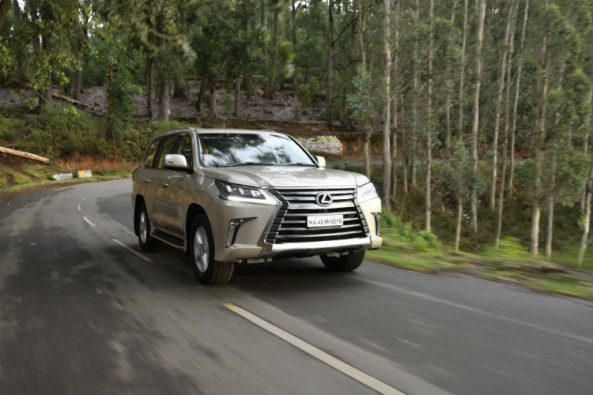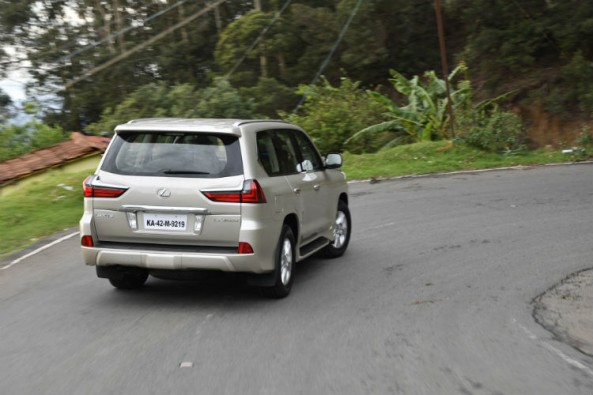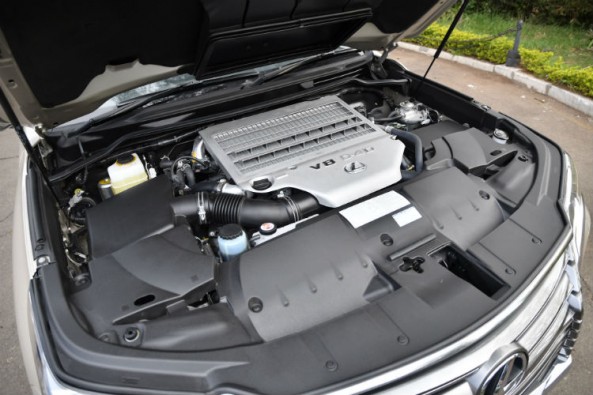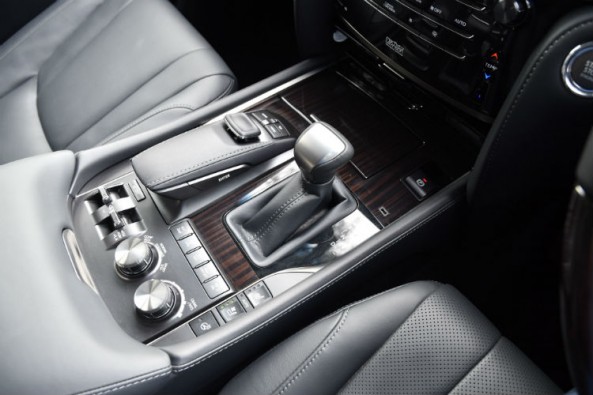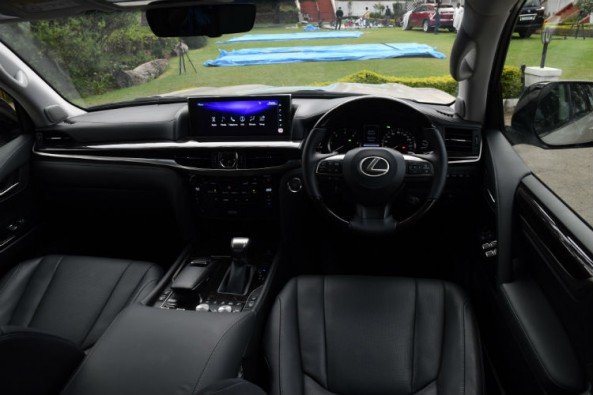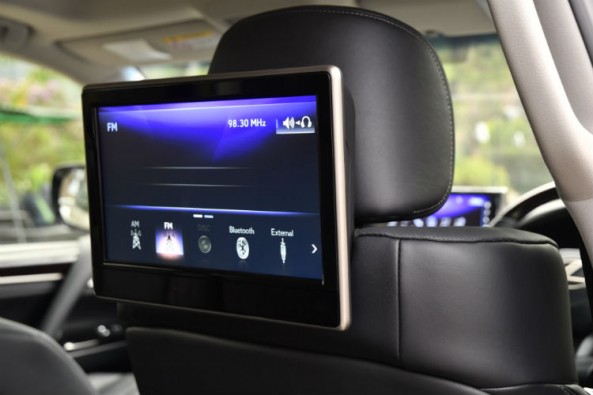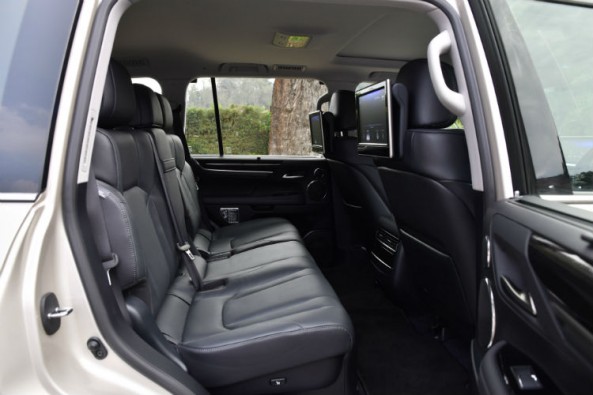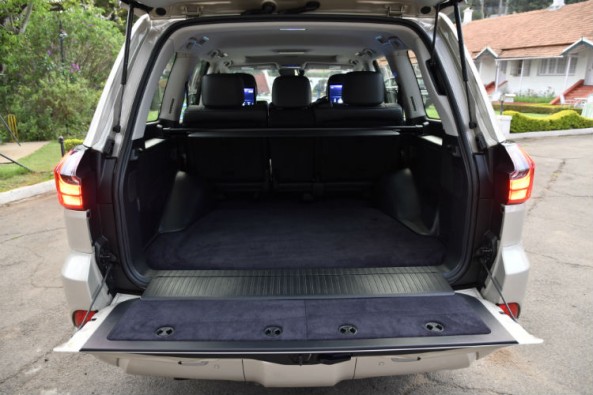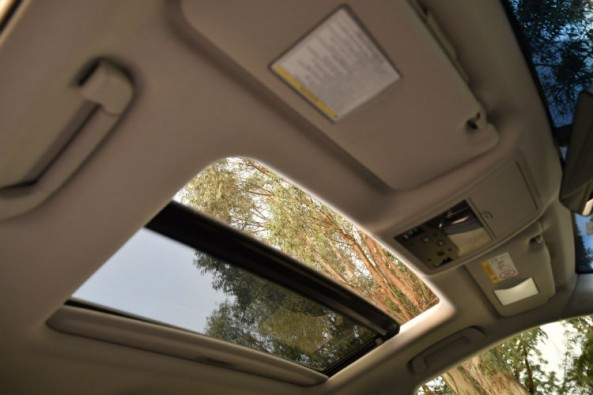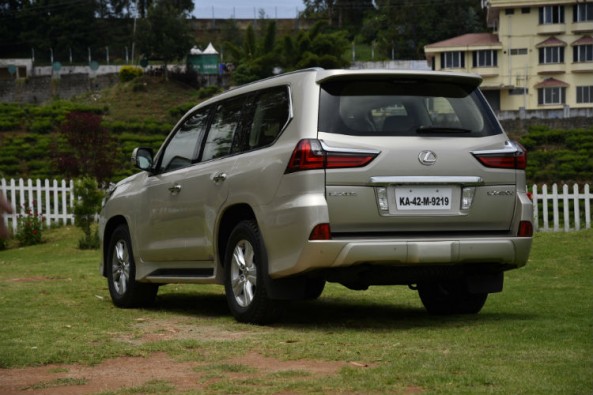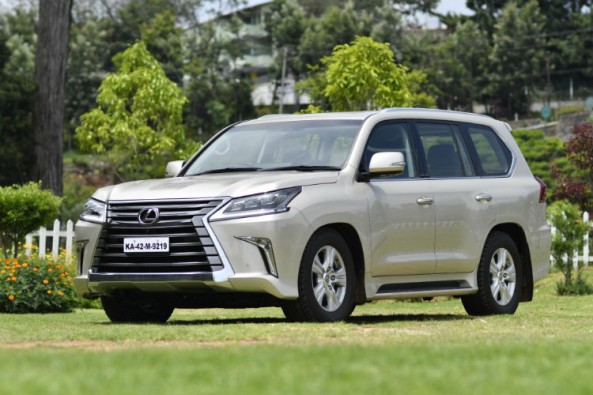This is Lexus's flagship SUV. It is based on Toyota’s Land Cruiser LC200 but is posher and far more luxurious. The car’s price is a hefty ₹2.32 crore (ex-showroom, Delhi). This is company’s third car to release in India, difference between the two sedans and this car is that the sedans are hybrids, while the LX450d is available with only a V8 diesel under the hood.
The LX450d has a commanding stance, measuring a little over 5m in length and almost 2m in width. Its sheer dimensions are enough to intimidate - the high bonnet, large wheels and the unique spindle grille give the LX450d a lot of character. The LED headlamps, with daytime running lamps and LED fog-plus-cornering lamps, add that additional touch of premiumness. But, when viewed from the side, it resembles the Toyota LC200.
Entering the LX450d involves a two-step trek. There’s an option to lower the SUV a bit each time the engine is turned off, to enable easier access. The interior is completely redesigned - there is high-quality leather and wood trim all over.
The instruments look crisp and the analogue clock at the centre of the dash adds a touch of class. Quality of parts is mostly good but some parts feel out of place in a car of this price. The gear console has a lot of buttons and knobs (many for the off-road controls) which, take time to learn. Certain buttons, like those for park assist, are oddly placed behind the steering, literally out of sight. Also, a grouse is the fact that this car gets a manual sunshade for the sunroof.
The front seats are wide, ventilated and very comfortable - the throne-like high seating position results in a commanding view of the road. The side mirrors are large and there are four cameras that offer a 360-degree view to help you park better. The large infotainment screen isn’t touch-controlled though, but there’s a joy pad and some physical buttons to navigate through menus. Owners will miss having a satnav though. This car’s 19-speaker Mark Levinson system sounds great.
If you’re chauffeur-driven, you might be a bit disappointed with overall comfort at the rear. While the seat is wide enough for three, it’s positioned low, so passengers will have to sit with their knees up. Underthigh support is limited, the armrest is placed too low, and even leg room isn’t as much as what you’d expect from a car of this size. Rear occupants, however, are thoroughly pampered with two 11.6-inch screens, four-zone climate control and ventilated seats. The large glass area brightens up the backseat experience even further. The split boot opens up to a cavernous boot. The full-size spare tyre, which sits beneath the body, comes with an alloy wheel as well.
This car comes with only one engine – a 4,461cc, V8 diesel that produces 265hp and 650Nm of torque, and is mated to a six-speed automatic transmission. Power and torque are much lower than the Range Rover, which it competes with, whose V8 diesel makes 340hp and 740Nm of torque. Additionally, the LX’s kerb weight of around 3 tonnes slows down performance a fair bit.
Put your foot down on the pedal and there’s a bit of a pause and then this engine begins to build speed. This engine is quite noisy for a V8, but thanks to a well-insulated cabin, you won't hear much of it inside. Contrary to the refined nature Lexus vehicles possess, this one gets vocal as you push it harder. The Lexus rides well over rough patches and you don’t need to slow down over bad sections of road – it irons bumps out quite well. The body moves around a lot too. This SUV comes with ‘adaptive variable suspension’ that work based on the five driving modes – Normal, Eco, Comfort, Sport S and Sport S+. The modes alter the steering, ride and throttle responses. There’s a noticeable body roll around bends and it feels quite top heavy thanks to its size. Even under braking, the nose dives and you can feel the bulk of the SUV. On straights, however, this car is absolutely rock solid and will effortlessly munch on the kilometres.
This SUV is capable of taking its owners practically anywhere its four wheels can go. It’s luxurious, fairly comfortable and is built like a tank. Plus, it’s a Japanese car, so it will run reliably without too much trouble for a long time. Its price is a deal breaker though - at ₹2.32 crore, it’s just very expensive to buy. A Range Rover V8 diesel costs ₹1.98 crore. But for buyers who are familiar with the Lexus brand, the LX450d is the car to go for.
